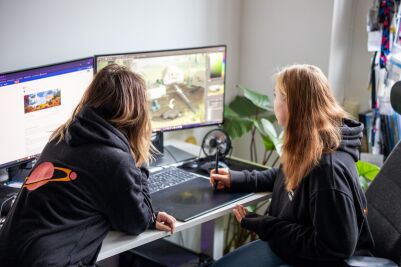Daily life at a game studio can differ a lot between studios. For instance depending on the studio’s size, if it’s one of several studio sites around the world, and depending on its process and routines.
There are plenty of successful recipes on how to make games, but regardless of how it’s done - a key ingredient is to have fun while doing so. That's especially true among the studios in south Sweden where the work-life balance is very important, and where most studios are doing a lot to also provide various social activities for their staff. Many studios find this important simply because games are fun, and making them should be too. Plus of course, as making games is hard work, studios in general want to reward their staff for their efforts. Many studios also employ a considerable number of employees that have moved here from other countries, and especially for them, getting additional social context outside of work is important.
It of course depends on your role at the studio, but you are likely to sit in front of a computer a lot. Because after all, that’s how much of the important work in game development is done. The number of meetings differ greatly. Some studios shield their game producing staff from having to attend too many meetings so that they instead can focus on what they do best - creating and developing. Other studios work in sprints, where they have meeting free days or weeks to allow for focused production time.


